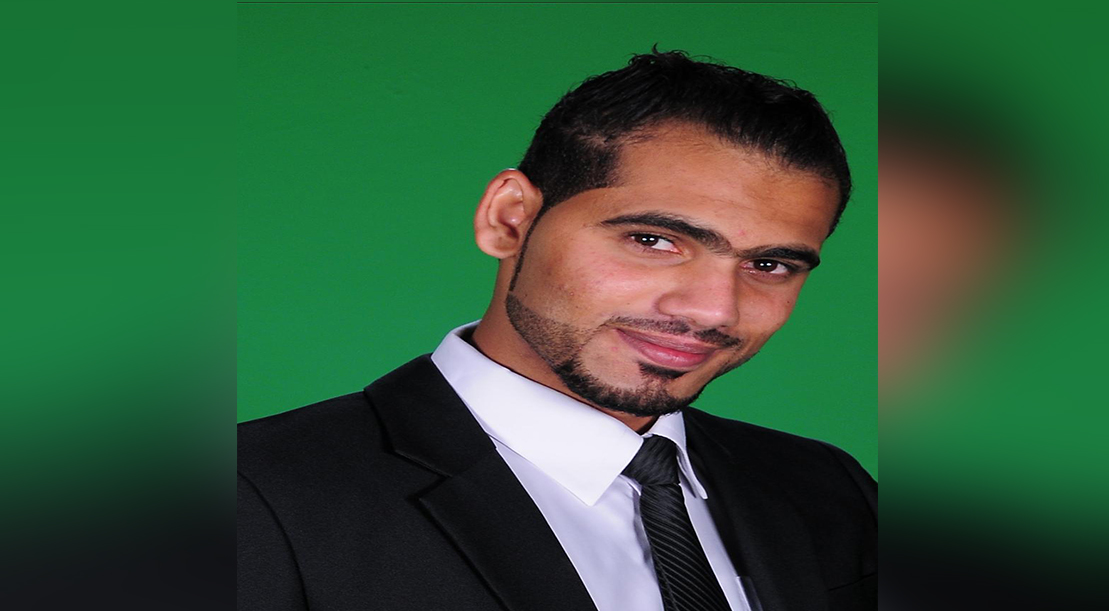Salman Ali Saleh was 24 years old when Bahraini authorities arrested him in November 2015. Salman was tortured after he was arrested for alleged possession of explosive materials and collaboration with a terrorist cell. He was also accused of cooperating with wanted persons abroad, though his passport had expired four years prior to his arrest. Salman is currently serving a sentence of 25 years at Jau Central prison.
On 15 May 2018, Bahrain’s Fourth High Criminal Court pronounced Salman guilty in a mass trial involving 138 defendants accused of joining a terrorist cell called the “Zulfiqar Brigades”. The court convicted 115 defendants, including Salman, on terror-related charges. On 9 June 2020, the United Nations Working Group on Arbitrary Detention (WGAD) published an opinion for the immediate release of Salman and 19 other Bahraini citizens that ADHRB represented in its complaint to the UN.
Salman was arrested on 5 November 2015 while he was outside a cell phone shop in Sitra. Riot police, police force, and officers from the Criminal Investigations Directorate (CID) surrounded the store and publicly beat Salman. Prior to Salman’s arrest, the police raided his home several times, ignoring Salman’s family’s objections. While the police officers claimed they were ordered to conduct the raid, they failed to provide a search and arrest warrant.
Police forces targeted Salman because they suspected him of filming marches and protests. During the raid, they confiscated his mobile phone and flash memory card. The CID also claimed that Salman led them to a location where they found a carton with weapons and bullets.
Pursuant to the arrest, Bahraini forces subjected Salman to a 26-day enforced disappearance. After the arrest, the police took him to the CID and transferred him to Jau prison three hours later. On 28 November 2015, Salman was transferred to the Dry Dock Detention Center where he spent three days in solitary confinement. On 1 December, officers allowed Salman to contact his family for the first time since his arrest. On 25 June 2018, Salman was transferred from the Dry Dock Detention Center to Jau prison where he is currently serving his sentence.
Salman was tortured at the CID and the Investigation facility in Building 15 of Jau Prison, where he was coerced into making a false confession. Officers in civilian clothing carried out the torture, blindfolding Salman and beating him all over his body, including his chest. They used electric tools to physically abuse him and degraded him for his Shi’a beliefs.
As a result of the extreme torture he endured, Salman suffered from severe physical injuries. After receiving blows to the chest during his interrogation period, Salman was diagnosed with cardiovascular problems and hepatitis B. While Salman complained about sharp ear pain, he was denied medical treatment.
On 15 May 2018, Salman was sentenced to 25 years in prison on account of charges related to illegal possession of firearms for terrorist aims. As Salman only met his lawyer during hearings in the courtroom, he was unable to adequately prepare his defense. Bahraini authorities also barred him from challenging evidence presented against him in front of a judge. In June 2018 and July 2019, the Court of Cassation upheld Salman’s original verdict and sentence. While Salman’s nationality was reinstated by royal decree in April 2019, he remains incarcerated in Jau prison.
The use of torture during Salman’s interrogation violates both Bahraini law and Bahrain’s obligations under the Convention against Torture and Other Cruel, Inhuman or Degrading Treatment or Punishment (CAT) under International law. Salman’s arbitrary detention and unfair trial also contravened the International Covenant on Civil and Political Rights (ICCPR), to which Bahrain acceded in 2006.
Salman was also subjected to unfair trial practices and due process violations as he was barred from adequate legal counsel. The court also dismissed Salman’s claims that the evidence presented against him was fabricated.
- On 19 July 2018, ADHRB submitted a complaint regarding the Zulfiqar mass trial to the United Nations (UN) Special Procedures Offices of the Human Rights Council.
- ADHRB represented Salman and 15 other defendants before the UN, providing key evidence of the systematic abuses they faced.
- In 2020, the United Nations Working Group on Arbitrary Detention (WGAD) published an opinion concerning the Zulfiqar cases, requesting the immediate release of 20 prisoners including Salman.
- ADHRB fully supports the WGAD’s recommendations and urges the Government of Bahrain to unconditionally release Salman and the 19 other prisoners and ensure they receive adequate medical care. ADHRB also calls for Bahrain to abide by international standards for fair trials and the investigation of allegations of torture.





